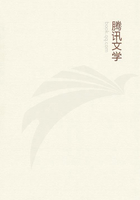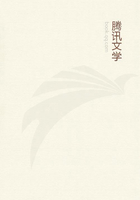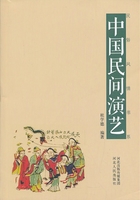For the sake of such words, in the midst of an evil and adulterous generation, we will love young Cartwright, in spite of the suspicion that, addressed as the play is to Charles, and probably acted before his queen, the young rogue had been playing the courtier somewhat, and racking his brains for pretty sayings which would exhibit as a virtue that very uxoriousness of the poor king which at last cost him his head. The 'Royal Slave,' too, is a gallant play, right-hearted and lofty from beginning to end, though enacted in an impossible court-cloud-world, akin to that in which the classic heroes and heroines of Corneille and Racine call each other Monsieur and Madame.
As for his humour; he, alas! can be dirty like the rest, when necessary: but humour he has of the highest quality. 'The Ordinary' is full of it; and Moth, the Antiquary, though too much of a lay figure, and depending for his amusingness on his quaint antiquated language, is such a sketch as Mr. Dickens need not have been ashamed to draw.
The 'Royal Slave' seems to have been considered, both by the Court and by his contemporaries, his masterpiece. And justly so; yet our pleasure at Charles's having shown, for once, good taste, is somewhat marred by Langbaine's story, that the good acting of the Oxford scholars, 'stately scenes, and richness of the Persian habits,' had as much to do with the success of the play as its 'stately style,' and 'the excellency of the songs, which were set by that admirable composer, Mr. Henry James.' True it is, that the songs are excellent, as are all Cartwright's; for grace, simplicity, and sweetness, equal to any (save Shakspeare's) which the seventeenth century produced: but curiously enough, his lyric faculty seems to have exhausted itself in these half-dozen songs. His minor poems are utterly worthless, out Cowleying Cowley in frigid and fantastic conceits; and his varied addresses to the king and queen are as bombastic and stupid and artificial as anything which bedizened the reigns of Charles II. or his brother.
Are we to gather from this fact that Cartwright was not really an original genius, but only a magnificent imitator; that he could write plays well, because others had written them well already, but only for that reason; and that for the same reason, when he attempted detached lyrics and addresses, he could only follow the abominable models which he saw around him? We know not; for surely in Jonson and Shakspeare's minor poems he might have found simpler and sweeter types; and even in those of Fletcher, who appears, from his own account, to have been his especial pattern. Shakspeare however, as we have seen, he looked down on; as did the rest of his generation.
Cartwright, as an Oxford scholar, is of course a worshipper of Charles, and a hater of Puritans. We do not wish to raise a prejudice against so young a man by quoting any of the ridiculous, and often somewhat abject, rant with which he addresses their majesties on their return from Scotland, on the queen's delivery, on the birth of the Duke of York, and so forth; for in that he did but copy the tone of grave divines and pious prelates; but he, unfortunately for his fame, is given (as young geniuses are sometimes) to prophecy; and two of his prophecies, at least, have hardly been fulfilled. He was somewhat mistaken when, on the birth of the Duke of York, he informed the world that 'The state is now past fear; and all that we Need wish besides is perpetuity'; and after indulging in various explanations of the reason why 'Nature' showed no prodigies at the birth of the future patron of Judge Jeffreys, which, if he did not believe them, are lies, and if he did, are very like blasphemies, declares that the infant is 'A son of Mirth, Of Peace and Friendship; 'tis a quiet birth.'
Nor, again, if spirits in the other world have knowledge of human affairs, can Mr. Cartwright be now altogether satisfied with his rogue's augury as to the capacities of the New England Puritans, when he intends to pick pockets in the New World, having made the Old too hot to hold him -
'They are good silly people; souls that will Be cheated without trouble: one eye is Put out with zeal, th' other with ignorance, And yet they think they're eagles.'
Whatsoever were the faults of the Pilgrim Fathers (and they were many), silliness was certainly not among them. But such was the court fashion. Any insult, however shallow, ribald, and doggrel (and all these terms are just of the mock-Puritan ballad which Sir Christopher sings in 'The Ordinary,' just after an epithalamium so graceful and melodious, though a little warm in tone, as to be really out of place in such a fellow's mouth), passes current against men who were abroad the founders of the United States, and the forefathers of the acutest and most enterprising nation on earth; and who at home proved themselves, by terrible fact, not only the physically stronger party, but the more cunning. But so it was fated to be. A deep mist of conceit, fed by the shallow breath of parasites, players, and pedants, wrapt that unhappy court in blind security, till 'the breaking was as the swelling out of a high wall, which cometh suddenly in an instant.'
'But, after all, what Poetry and Art there was in that day, good or bad, all belonged to the Royalists.
All? There are those who think that, if mere concettism be a part of poetry, Quarles is as great a poet as Cowley or George Herbert, Vaughan or Withers. On this question, and on the real worth of the seventeenth century lyrists, a great deal has to be said hereafter.

